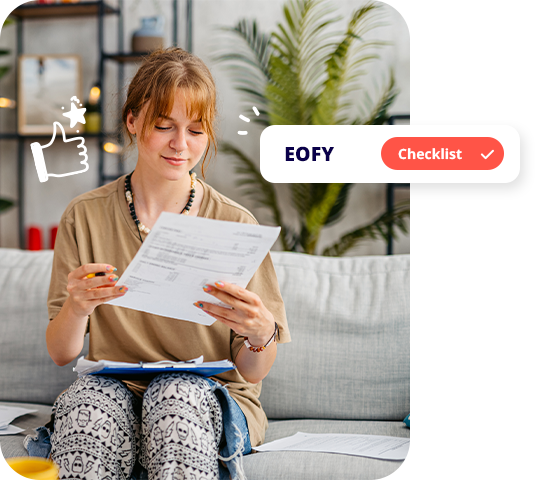SMALL BUSINESS RESOURCES
How and when to lodge a small business tax return
4 min read
Managing your small business tax compliance obligations is one of the most important responsibilities when starting a new business and a major part of this is lodging your tax return every financial year. How and when you lodge your tax return to the Australia Taxation Office (ATO) depends on the structure of your business. Here’s our tax help guide to small business tax returns for each business structure.
Sole trader
How to lodge? If you’re a sole trader you only need to file one individual tax return. This will cover both your personal and business income. You can lodge your individual tax return in one of the following ways:
- Do your tax return online via the ATO myTax portal
- Through a registered tax agent
- Complete a paper tax return and mail it to the ATO
When to lodge? Lodge by yourself: Your return is due by 31 October each year. Lodge through a registered tax agent: Registered tax agents operate on their own lodgement schedule. Your agent will be able to tell you the date by which your return must be completed, but you must be registered with an agent by 31 October. Tax tip: As a sole trader you are required to fill out a separate section on the individual tax return called the business and professional items schedule for individuals.
Partnership
How to lodge? If you run your business as a partnership, you’ll need to lodge a partnership tax return in one of the following ways:
- Using SBR enabled software
- Through a registered tax agent
- Complete a paper tax return and mail it to the ATO
When to lodge? Lodge by yourself: Your partnership tax return must be lodged by 31 October. Lodge through a registered tax agent: They’ll tell you when you can lodge. Tax tip: The partnership itself does not pay tax on the income it earns. A partnership tax return simply reports the partnerships’ net income, which is its income minus any expenses and deductions. Individual partners in the business then file an individual tax return and pay tax on their share of the income generated from the partnership.
Company
How to lodge? If your business operates as a company, you must lodge a company tax return in one of the following ways:
- Using Standard Business Reporting (SBR) enabled software
- Through a registered tax agent
- Complete a paper tax return and mail it to the ATO
Note: A company’s income is separate from your personal income. So if you’re a director of a company, you will still need to lodge an individual tax return to report your personal income (e.g. salary earned from the company). When to lodge? Lodge yourself: Company tax returns lodgement dates vary. The majority of company tax returns will be due 28 February. We recommend you check the ATO website for your specific date. Lodge through a registered tax agent: They’ll tell you when you can lodge. Tax tip: If you don’t lodge your previous financial year return on time, your company tax return is due by 31 October.
Trust
How to lodge? If your business is run as a trust, the trustee must lodge a trust tax return in one of three ways:
- Using SBR enabled software
- Through a registered tax agent
- Complete a paper tax return and mail it to the ATO
Tax tip: Trusts typically do not pay tax. A trust tax return simply reports the trust’s net income, which is its income minus any expenses and deductions. Income earned from the trust is then passed onto trust beneficiaries who then lodge their own individual tax returns to pay tax on the income earned from the trust. When to lodge? Lodge by yourself: Your trust tax return must be lodged by 31 October. Lodge through a registered tax agent: They’ll tell you when you can lodge. For more information and small business tax help visit our end of financial year hub.
By Michelle Ayling, December 7, 2018

Download our EOFY Checklist and be ready for tax time!
You’ll always be ready for tax time with Reckon One!
Take control of your finances in the new financial year.
















